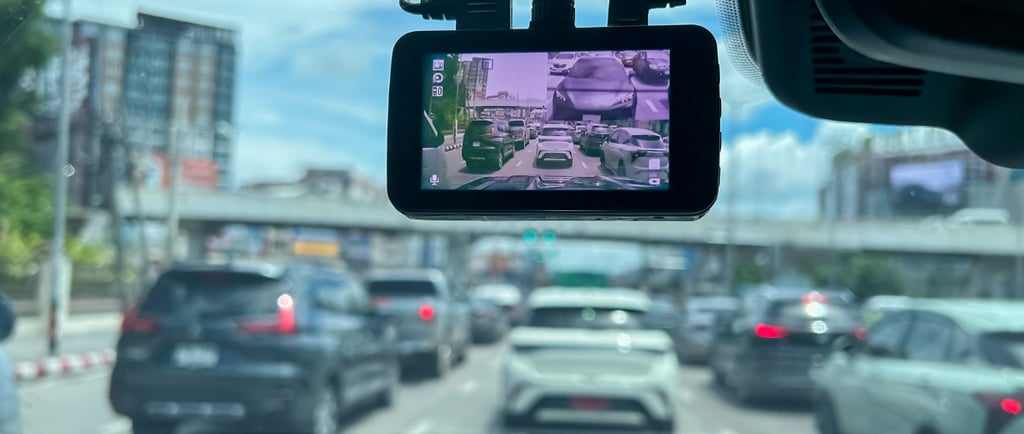How to Legally Record Interactions During a DUI Checkpoint Stop
Ever wondered if you’re allowed to record police during a DUI checkpoint stop? The answer is yes, but there are rules to follow so you don’t accidentally break the law. It’s your right to protect yourself, and knowing how to legally document interactions keeps things fair and clear.
6/16/20253 min read


Ever wondered if you’re allowed to record police during a DUI checkpoint stop? The answer is yes, but there are rules to follow so you don’t accidentally break the law. It’s your right to protect yourself, and knowing how to legally document interactions keeps things fair and clear.
Minor missteps, like interfering with officers or capturing private conversations, can complicate things fast. If you think your rights were crossed, sharing your recording with a DUI lawyer in Sidney, OH, could change the game.
With the right steps, you can stay calm, stick to the law, and be confident in your actions. Read on to learn more.
Understand Your Right to Record
Recording public officials can be a powerful tool for accountability and transparency. However, it is essential to exercise this right responsibly by maintaining a safe distance and refraining from actions that could obstruct their duties.
Ensure your recording does not compromise an active investigation or create unnecessary conflict. Public officials, including law enforcement officers, should remain aware that this right is protected under the Constitution, ensuring public scrutiny in a free society.
Always be prepared to calmly assert your rights if challenged, but staying respectful and composed is crucial to avoiding misunderstandings or escalations.
Do Not Obstruct or Delay the Process
Remaining calm and cooperative during a traffic stop can significantly impact the outcome of the interaction. Avoid any behavior that could be perceived as interfering with the officer's duties, as this can escalate the situation and potentially lead to additional charges.
Here are some key ways to ensure you do not obstruct or delay the process:
Respond promptly and respectfully: Answer the officer's questions in a polite and concise manner. Avoid argumentative or sarcastic remarks, as they may be perceived as uncooperative.
Refrain from unnecessary movements: Sudden or excessive movements might raise suspicions, such as reaching around the car or fidgeting. Always inform the officer if you need to retrieve documents from a specific location, like the glove compartment.
Avoid impeding the investigation: Do not refuse lawful requests, such as providing your license, registration, or proof of insurance. Declining these requests or arguing with the officer can delay the process and may lead to additional consequences.
With the help of a DUI lawyer in Sidney, OH, you can discuss the specifics of your case and determine the best course of action in terms of cooperating with law enforcement.
Seek Legal Support for Proper Use of Recordings
If your recording reveals rights violations or improper actions, it’s important to act quickly with the help of a DUI lawyer. A skilled attorney will know how to review the evidence and determine its legality. They will also help ensure the recording complies with Ohio laws for admissibility in court.
An experienced lawyer can explain your rights and provide advice on the strongest strategy for your case. They will advocate for you, helping to present the recording effectively. Legal expertise can be the key to protecting your interests and achieving the best possible outcome. Always consult a professional to use recordings responsibly in a legal setting.
Protect Your Rights with a DUI Lawyer in Sidney, OH
Recording during a DUI checkpoint can give you peace of mind, but doing it legally is key. Knowing your rights and staying calm can make all the difference if the interaction gets complicated. When questions arise or your rights are at stake, contact Scott A. Kelly, Attorney at Law.
Key Takeaways
Can I legally record a DUI checkpoint stop?
Yes, it is your constitutional right to record public officials, including law enforcement, during a DUI checkpoint stop as long as you follow the law. Ensure your actions don’t interfere with the officer’s duties or obstruct the investigation.
What should I avoid while recording a DUI checkpoint interaction?
Avoid obstructing or delaying the process by remaining calm, cooperative, and respectful. Refrain from unnecessary movements, argumentative behavior, or refusing lawful requests, as these actions can escalate the situation.
How can a recording help in a DUI case?
A recording can provide critical evidence if you believe your rights were violated during a DUI checkpoint stop. Consulting with a skilled DUI lawyer ensures the recording is used legally and effectively in your defense.
TROY OFFICE
10 N. MARKET ST.
TROY, OHIO 45373
